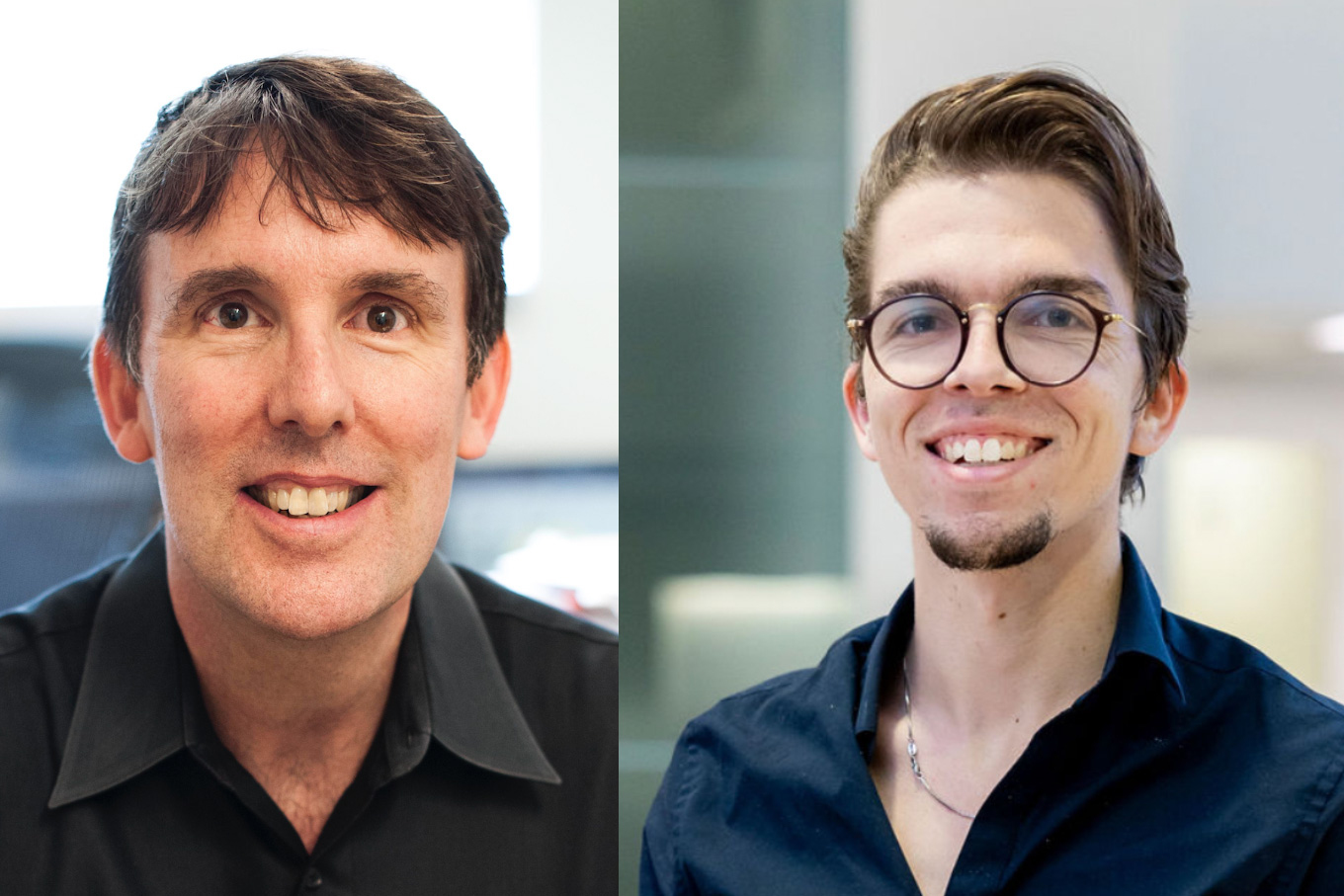
Edward Gibson and Eric Martinez are among this year's winners of the satiric prize, for explaining what makes legal documents so difficult to comprehend.
Department of Brain and Cognitive Sciences
Two MIT scientists from the Department of Brain and Cognitive Sciences (BCS) are among this year’s winners of the Ig Nobel Prize, the satiric award celebrating “achievements that first make people laugh, and then make them think.”
BCS professor Edward “Ted” Gibson and graduate student Eric Martinez, along with former MIT visiting researcher Francis Mollica, now at the University of Edinburgh, were awarded the prize in the literature category for their work explaining what makes legal documents so challenging to comprehend.
The quirky Ig Nobel prize is known for its humorous ceremony protocols and traditions, including a girl who constantly cries out to speakers, “please stop, I’m bored.” The prizes are handed out by Nobel laureates.
The MIT scientists received the prize for a study they published earlier this summer in the journal Cognition. They began their research by analyzing thousands of legal documents using a text analysis tool that identifies repeating textual features. The researchers pinpointed several features that distinguish legal contracts from nonlegal texts, including unnecessary jargon, passive sentence structures, and non-standard capitalization (such as all caps).
The researchers then conducted another experiment to see which features actually affect reading comprehension and retention. “There are attempts to simplify legal language going back to the 1970s, which single out the passive voice, but we found it doesn’t affect comprehension,” says Gibson, the study’s senior author. “Before replacing ‘legalese’ with something comprehensible, we first need to figure out what actually makes it difficult to read.”
The researchers confirmed the common assumption that jargon is an obstacle to comprehension and retention. But they found that, more than anything else, clauses embedded in the middle of sentences make legal contracts unreadable. “When lawyers want to add conditions to a contract, they tend to pile them up at the center of a sentence, creating a very long sentence,” says Gibson. “That’s horrible for all humans to understand. It’s a memory problem — you have these long-distance connections within one sentence that should be several separate sentences. It’s much harder for both production and comprehension.” Martinez, the lead author of the study, adds: “We found that even lawyers have a hard time reading these sentences.”
The study had its start in Gibson’s undergraduate class on psycholinguistics. Martinez, a Harvard Law student at that time, was interested in looking further into the observation that legal language is complicated to understand. “We immediately connected because I have been fascinated by the complexity of legal language, but I don’t know anything about law,” says Gibson. Frank Mollica joined the two and helped develop simple methods to evaluate how much information is stored in a given sentence.
The Ig Nobel awards, handed out by the science humor magazine the Annals of Improbable Research, present winners with a 10 trillion Zimbabwean dollar bill and a paper trophy.
